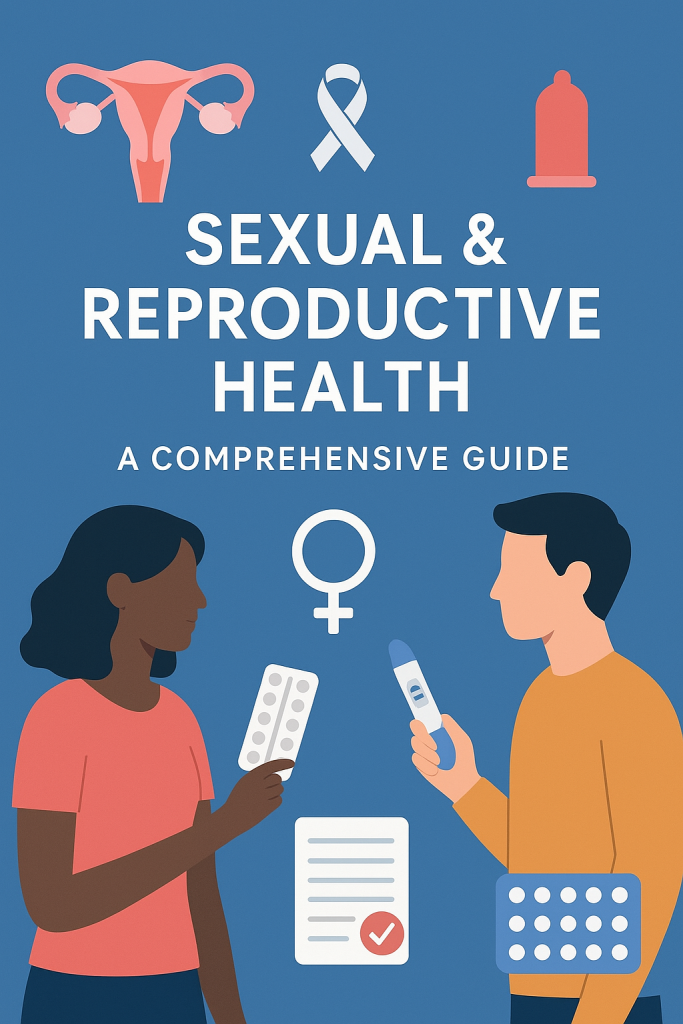Women’s health encompasses a range of concerns that evolve at different life stages. Some conditions, such as Polycystic Ovary Syndrome (PCOS) and menopause, are unique to women due to hormonal and reproductive factors. Understanding these health issues, their symptoms, and ways to manage them can empower women to make informed decisions about their well-being.
Thank you for reading this post, don't forget to subscribe!Polycystic Ovary Syndrome (PCOS)
PCOS is a common endocrine disorder that affects many women of reproductive age. It is characterized by hormonal imbalances that disrupt menstrual cycles and ovarian function.
Symptoms of PCOS:
- Irregular or missed periods
- High levels of androgens, which may cause acne, excessive hair growth, or thinning hair
- Unexplained weight fluctuations
- Insulin resistance, which can increase the risk of type 2 diabetes
- Challenges with fertility due to disrupted ovulation
Causes of PCOS:
Although the exact cause of PCOS remains unclear, genetic and environmental factors play a role. Insulin resistance and an excess of androgens contribute to its development.
Management and Treatment:
Though PCOS cannot be cured, its symptoms can be managed effectively with a combination of lifestyle changes and medical interventions:
- Eating a balanced diet rich in whole foods, lean proteins, and fiber
- Engaging in regular physical activity to improve insulin sensitivity
- Medications like hormonal contraceptives to regulate menstrual cycles
- Stress management techniques, such as yoga and mindfulness practices
Menopause: A Significant Life Transition
Menopause signifies the natural conclusion of a woman’s reproductive years and usually occurs between the ages of 45 and 55. A woman is considered to have reached menopause when she has not had a menstrual period for 12 consecutive months. The transitional phase before menopause, called perimenopause, is marked by significant hormonal changes that may cause physical and emotional symptoms.
Common Symptoms of Menopause:
- Sudden sensations of heat, commonly known as hot flashes
- Mood swings and irritability
- Vaginal discomfort, which may affect intimacy
- Disrupted sleep patterns
- Increased tendency for weight gain
- Reduced bone density, leading to a higher risk of fractures
Causes of Menopause:
Menopause results from a gradual decline in estrogen and progesterone levels, which regulate the menstrual cycle and support various bodily functions.
Management and Treatment:
Although menopause is a natural stage of life, its symptoms can be alleviated with effective management strategies:
- Hormone Therapy: Used to address severe symptoms, though risks should be discussed with a healthcare provider
- Nutritional Adjustments: Increasing calcium intake to support bone health and limiting caffeine and alcohol consumption to reduce hot flashes
- Exercise: Incorporating activities like strength training, walking, or yoga to enhance overall health
- Herbal Supplements: Some women use natural remedies such as black cohosh to help with symptom relief
- Emotional Well-being: Prioritizing mental health through relaxation techniques and seeking social support
Additional Health Concerns for Women
Beyond PCOS and menopause, women face other health challenges that require attention and proactive care.
Endometriosis:
A painful condition in which tissue similar to the uterine lining grows outside the uterus. Symptoms may include severe menstrual pain, heavy bleeding, and potential fertility issues. Treatment options include pain management, hormonal therapy, and surgery in severe cases.
Osteoporosis:
A progressive condition that weakens bones and increases susceptibility to fractures. Women, particularly those past menopause, are at a higher risk due to decreased estrogen levels. Preventive strategies include consuming calcium and vitamin D, engaging in weight-bearing exercises, and undergoing bone density screenings.
Breast Health:
Breast cancer remains one of the most prevalent cancers among women. Early detection through self-examinations and regular mammograms significantly improves survival rates. Healthy lifestyle choices, including maintaining a balanced diet and avoiding smoking, can reduce risk factors.
The Importance of Preventive Care
Taking preventive measures is essential for long-term health. Regular screenings, a nutritious diet, and an active lifestyle contribute to overall wellness. Key steps include:
- Scheduling routine gynecological check-ups and necessary screenings
- Conducting breast self-examinations and scheduling mammograms based on age and risk factors
- Adopting a healthy lifestyle with balanced nutrition and physical activity
- Managing stress effectively and ensuring adequate sleep
- Staying up to date with vaccinations and health check-ups
Conclusion
Women’s health is multifaceted, with PCOS, menopause, and other conditions requiring attention at different life stages. By recognizing the symptoms and adopting a proactive approach to health management, women can improve their quality of life. Education, lifestyle modifications, and professional medical guidance are all crucial in ensuring optimal well-being. Seeking timely medical advice and making informed health choices can lead to a healthier and more fulfilling life.

